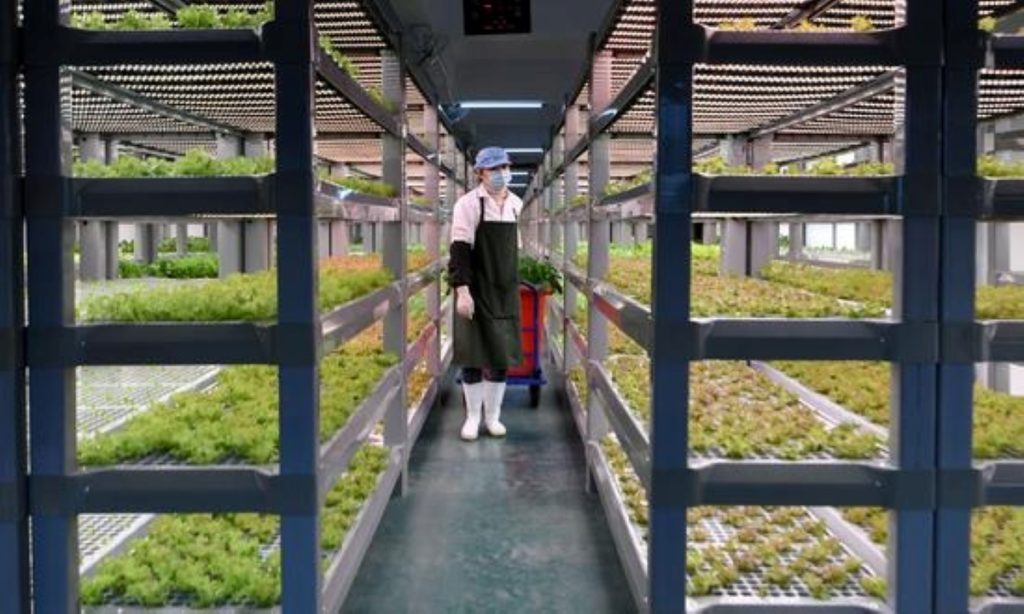Vertical farms are seen as an essential means of bringing enough food to arid and urban parts of China, with automated facilities that provide year-round harvests. Unaffected by climate constraints, new Chengdu facility can reportedly produce a harvest of lettuce every 35 days under AI-controlled environmental conditions.

The 20-storey urban farm, built under the oversight of the Chinese Academy of Agricultural Sciences in a downtown part of the provincial capital Chengdu, represents world-leading automation in farming. It also marks the latest effort to leverage technological innovation to ensure there is enough food to feed the country’s 1.4 billion people, as the nation’s self-sufficiency drive has become increasingly prioritized against the backdrop of geopolitical tensions that could affect imports and supply chains.
Chengdu’s vertical plant farm utilizes a range of cutting-edge technologies – including autonomously bred crop varieties, a vertical three-dimensional cultivation system, an automatic nutrient-supply system, energy-efficient artificial lighting emulating natural conditions, and an AI-based control system – to ensure stable production within vertical spaces.
Vertical farms, which have been seen in countries such as Japan, Singapore and the United States, are efficient agricultural systems that enable year-round continuous food production within multi-story structures. They can operate anywhere from urban settings to deserts, offering significant advantages in providing stable food supplies to areas where traditional farming is not possible.
According to the Internet















